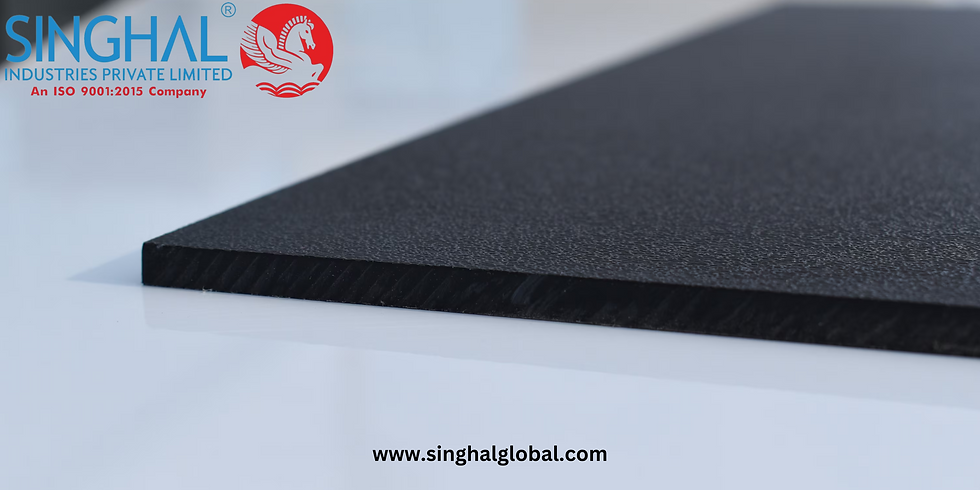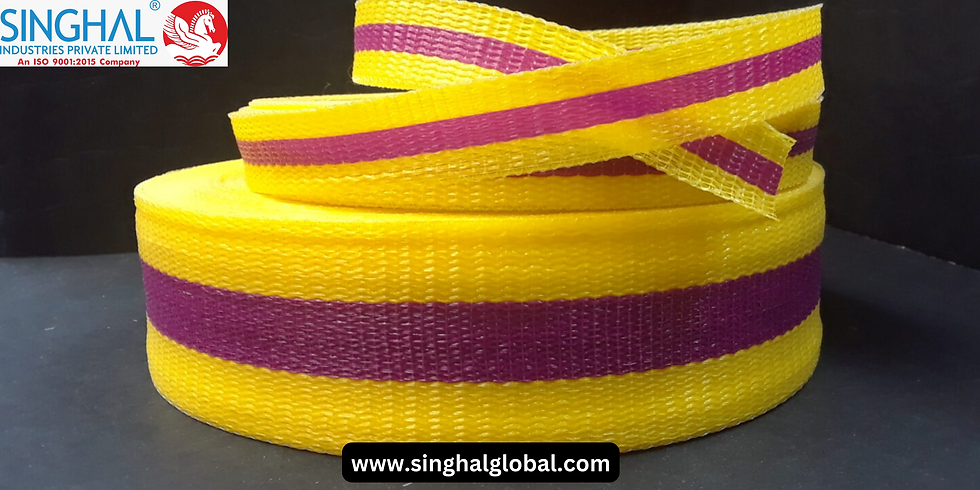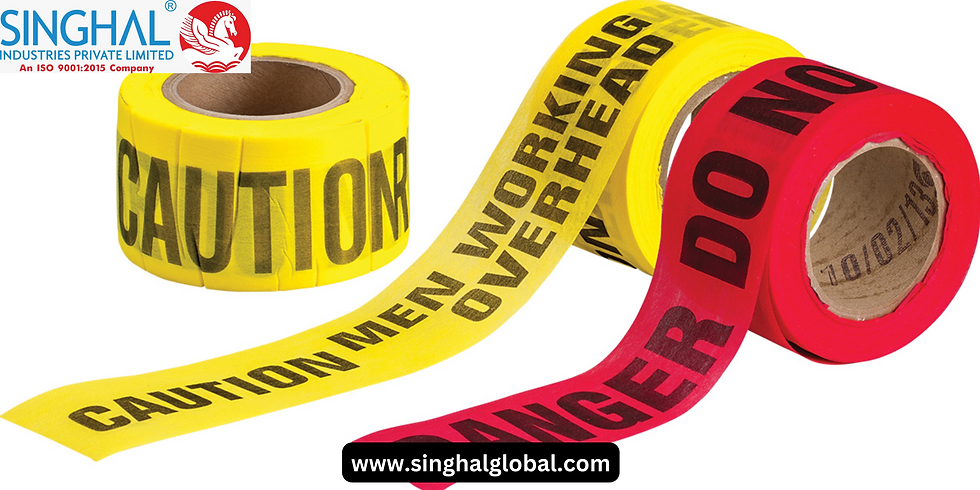Vacuum Form Plastic Sheets is a Comprehensive Guide for Businesses
- Singhal Industries Private Limited
- Oct 19, 2024
- 4 min read
Vacuum forming has revolutionized the manufacturing world, providing a cost-effective and versatile way to create a wide range of plastic products. Singhal Industries Pvt Ltd, a leading supplier in the industry, is here to shed light on Vacuform plastic sheets. This article will explore the types, benefits, and applications of vacuum form plastic sheets, and answer some common questions.
What Are Vacuum Form Plastic Sheets?
Vacuum Form Plastic Sheets are thermoplastic materials that are heated to a pliable forming temperature, then shaped to a mold using a vacuum. Once cooled, these sheets retain the shape of the mold, resulting in durable and consistent products. The process is ideal for producing parts with complex shapes, offering precision and versatility in design.
The Benefits of Vacuum Form Plastic Sheets
Vacuum Form Plastic Sheets offer numerous advantages for various industries:
Cost-Effective Production: The vacuum forming process is more affordable than other manufacturing methods, making it ideal for large-volume production.
Lightweight and Durable: These sheets are lighter than many other materials, yet they provide impressive durability and strength.
Versatility in Design: Vacuum forming allows for intricate designs, enabling the creation of parts with complex shapes and details.
Efficient Production Time: With quick setup and fast cycle times, vacuum forming helps manufacturers meet tight deadlines.
Types of Vacuum Form Plastic Sheets
There are several types of Vacuum forming plastic sheet suppliers available, each suited to different applications. Some common types include:
Acrylic (PMMA): Known for its clarity and resistance to UV light, making it ideal for outdoor signage and displays.
Polycarbonate (PC): Highly impact-resistant, polycarbonate sheets are used in applications requiring strength, such as safety shields and machine guards.
ABS (Acrylonitrile Butadiene Styrene): Popular for automotive parts, ABS sheets offer good rigidity and impact resistance.
HIPS (High-Impact Polystyrene): Known for its versatility, HIPS is commonly used in consumer products like trays, cups, and containers.
Applications of Vacuum Form Plastic Sheets in Various Industries
Vacuum Form Plastic Sheets have a wide range of applications across various industries:
Automotive: Used for creating interior panels, dashboards, and bumpers.
Packaging: Ideal for clamshell packaging, blister packs, and trays.
Retail Display: Commonly used for signage, display units, and point-of-sale stands.
Medical: Employed in the production of medical device housings and trays.
Electronics: Utilized for creating protective covers, housings, and cases for electronic devices.

Why Choose Singhal Industries Pvt Ltd as Your Vacuum Form Plastic Sheet Supplier?
As a trusted Vacuum Forming Plastic Sheet Supplier, Singhal Industries Pvt Ltd offers high-quality materials tailored to your specific needs. Here’s why Singhal Industries stands out:
Quality Assurance: We ensure our vacuum form plastic sheets meet industry standards, delivering products that are reliable and long-lasting.
Customization: Our team can work with you to create custom shapes and designs, meeting the exact specifications of your project.
Competitive Pricing: We offer competitive prices without compromising on quality, ensuring you receive the best value.
Customer Service: Our dedicated support team is always ready to assist with inquiries, ensuring a smooth and hassle-free experience.
Vacuum Form Plastic Sheets and Environmental Impact
Environmental sustainability is a key concern for modern businesses, and Vacuum Form Plastic Sheets offer several eco-friendly benefits:
Recyclable Materials: Many vacuum form plastic sheets are recyclable, reducing waste and promoting sustainability.
Reduced Material Use: The vacuum forming process requires less raw material compared to other manufacturing methods, lowering the environmental footprint.
Energy Efficiency: The process consumes less energy, further contributing to a smaller carbon footprint.
Choosing the Right Vacuum Form Plastic Sheets for Your Project
Selecting the right Vacuform Plastic Sheets depends on various factors:
Material Type: Different materials have unique properties. Consider factors such as impact resistance, transparency, and temperature tolerance.
Thickness: The thickness of the sheet affects its strength and flexibility. Thicker sheets offer more durability, while thinner sheets are more pliable.
Color and Finish: Some projects require specific colors or finishes. Singhal Industries offers a wide range of options to meet your aesthetic needs.
Cost Considerations: While vacuum forming is cost-effective, the choice of material and sheet size can impact the overall cost of the project.
How Vacuum Form Plastic Sheets Are Manufactured
The manufacturing process of Vacuum Form Plastic Sheets involves several key steps:
Heating: The plastic sheet is heated until it reaches a pliable state.
Molding: The heated sheet is then placed over a mold. A vacuum is applied, pulling the sheet tightly over the mold and creating the desired shape.
Cooling: Once the plastic has taken on the shape of the mold, it is cooled to set the shape permanently.
Trimming: Excess material is trimmed off, and the product is ready for use.
Advantages of Vacuum Forming Over Other Manufacturing Methods
Vacuum forming offers several advantages compared to other methods like injection molding:
Lower Tooling Costs: The molds used in vacuum forming are less expensive, reducing initial setup costs.
Faster Prototyping: Vacuum forming is ideal for creating prototypes quickly, allowing for rapid testing and iteration.
Flexibility: Vacuum forming can accommodate a wide range of shapes and sizes, making it a versatile choice for many applications.
Common Challenges and Solutions in Vacuum Form Plastic Sheets
Despite its benefits, Vacuum form plastic sheets do have some challenges. However, these can be managed with proper techniques:
Material Weakness: Some plastics may be prone to warping or cracking. Choosing the right material and thickness can prevent this issue.
Inconsistent Thickness: Uneven heating can lead to variations in thickness. Quality control measures ensure consistency across batches.
Surface Defects: Dust and contaminants can affect the final product. Keeping the production area clean minimizes this risk.
FAQ About Vacuum Form Plastic Sheets
What are the most common applications for vacuum form plastic sheets?
Vacuum Form Plastic Sheets are widely used in automotive, packaging, retail display, medical, and electronics industries. Their versatility and durability make them suitable for various applications, from protective covers to product packaging.
How long do vacuum form plastic sheets last?
The lifespan of Vacuum Form Plastic Sheets depends on the material used and the application. Generally, these sheets offer excellent durability, especially those made from materials like polycarbonate or ABS, which can last for many years.
Are vacuum form plastic sheets environmentally friendly?
Yes, many Vacuum Form Plastic Sheets are recyclable, and the vacuum forming process is energy-efficient. Additionally, some materials, such as HIPS and ABS, can be repurposed, contributing to a more sustainable manufacturing process.



Comments